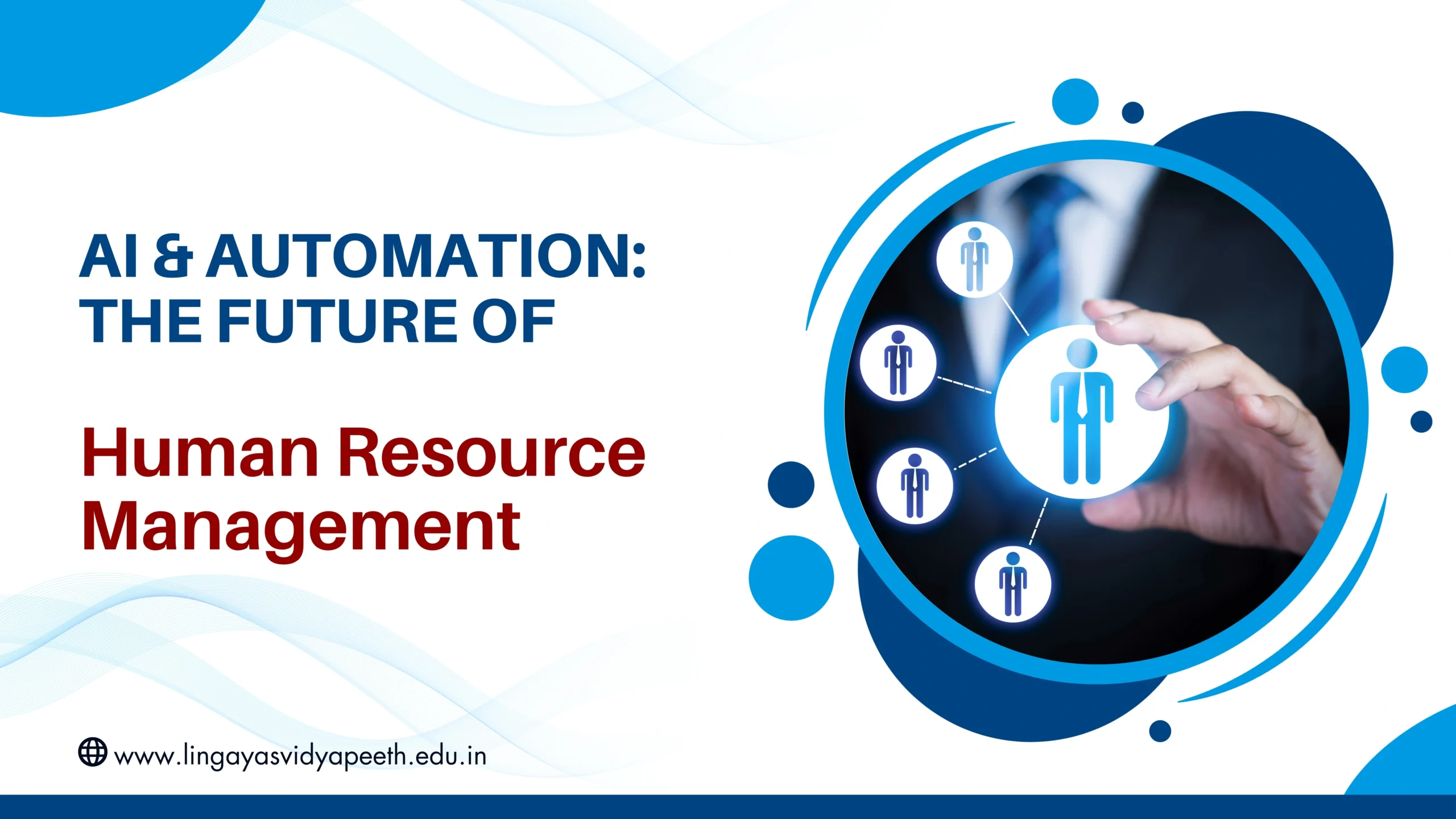Home » AI & Automation: The Future of Human Resource Management

In today’s fast-changing, technology-driven business world, Human Resource Management (HRM) is experiencing a major transformation. Traditional administrative roles are being reshaped by the integration of Artificial Intelligence (AI) in HR and HR automation tools, enabling organizations to manage their workforce more efficiently and strategically.
These technologies are revolutionizing how organizations attract, train, and retain talent by providing data-driven HR insights, streamlining processes, and enhancing decision-making capabilities.
AI-powered systems can analyze vast employee data to identify patterns, predict workforce trends, and provide actionable recommendations. Meanwhile, automation reduces repetitive tasks like payroll processing, attendance tracking, and compliance reporting. Together, they free HR professionals to focus on higher-value activities such as employee engagement, leadership development, workforce planning, and strategic initiatives.
As industries adopt these technologies, HR professionals who embrace AI and automation can improve productivity, enhance employee experience, and position HR as a strategic partner in business growth and competitive advantage.
AI systems analyze workforce data to identify patterns, predict attrition, and highlight skill gaps. These insights allow HR teams to proactively manage talent, rather than reacting to problems.
AI recruitment systems streamline candidate screening, match resumes with job descriptions, and even assess soft skills through behavioral analysis. This reduces time-to-hire and improves the quality of recruitment.
Instead of relying on outdated annual reviews, AI-driven performance management tools provide real-time employee analytics on productivity, engagement, and progress. This encourages continuous feedback and performance growth.
Automation handles repetitive HR tasks like leave management, payroll, and compliance, minimizing errors while allowing HR professionals to focus on career development, workplace culture, and retention strategies.
Unilever used AI-based hiring tools to screen 250,000 applications, reducing hiring time by 75% and improving candidate experience. This shows how AI in recruitment increases both efficiency and applicant satisfaction.
AI-powered learning platforms, such as IBM’s, recommend personalized courses aligned with skill gaps and career goals. This keeps employees agile and future-ready.
Adobe shifted to AI-driven performance management, fostering real-time feedback and a culture of continuous learning, which enhances both productivity and employee satisfaction.
Google’s people analytics uses AI to track collaboration, workload balance, and stress indicators. This data helps design wellness initiatives that improve morale, reduce attrition, and build a stronger workplace culture.
Organizations that adopt AI and automation in HR will:
For HR professionals, mastering AI tools and automation systems is no longer optional—it’s essential to thrive in the future of work.
At Lingaya’s Vidyapeeth, we recognize the importance of equipping students with knowledge of emerging HR technologies. Understanding AI-driven HR systems and automation is now a core skill for tomorrow’s HR leaders.
By integrating AI tools and automated systems into HRM, professionals can design workplaces that are data-informed, efficient, and employee-centric. This shift allows HR to focus on talent development, diversity and inclusion, employee engagement, and organizational culture rather than routine administration.
At Lingaya’s Vidyapeeth, we prepare learners to become forward-thinking HR leaders who can balance technology with human-centric management—creating workplaces that are intelligent, adaptive, and people-focused.
Also Read
Entrepreneurship courses after 12th
High salary courses after 12th commerce
MBA after 12th commerce
BBA course after 12th commerce
Highest paying MBA jobs
From
Dr. Jyoti
Assistant Professor
School of Commerce and Management
Lingaya’s Vidyapeeth
RECENT POSTS
CATEGORIES
TAGS
Agriculture Agriculture future AI Architecture artificial intelligence Bachelor of Commerce BA English BA Psychology BTech AIML BTech CSE BTech cybersecurity BTech Engineering Business management career Career-Specific Education career guide career option career scope Civil engineering commerce and management Computer Science Computer science engineering Data science degree education Engineering Engineering students English Literature english program Fashion Design Fashion design course Higher Education Journalism journalism and mass communication law Law career Machine Learning mathematics MBA MBA specialization Mechanical Engineering Pharmacy Psychology Research and Development students
LV only conducts physical/online verification of any document related to examination on the following email id:
It is important to note that the following email IDs and domains are fraudulent and do not belong to our university.